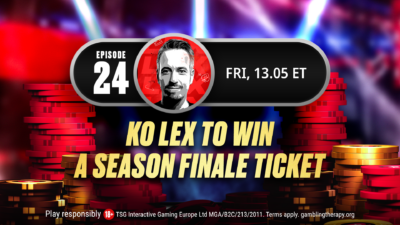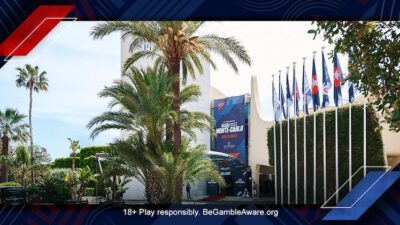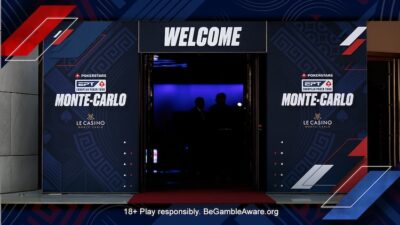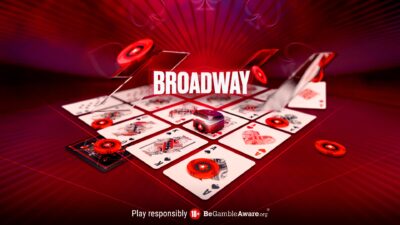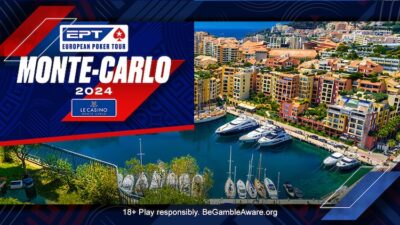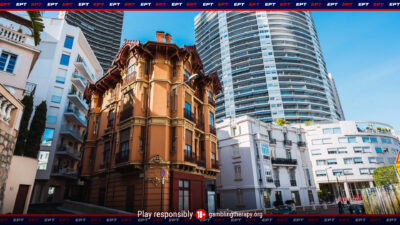I am not usually the person to turn to to write about the emotions involved in poker. We have people on staff who have won prizes for human interest stories. I do straightlaced reporting, and not much more.
But I have to say that even I got slightly swept away this past weekend at the Platinum Pass Experience final table, held at Aspers Casino, in London. This was the event that offered a $30K Platinum Pass to the winner of a single-table shootout, which featured eight players who had won a £5.50 qualifier online.
As is the case in many of PokerStars’ best promotions, the Platinum Pass Experience offered the chance for low-stakes grinders to have a shot at the biggest of the big time, and these kinds of events tend to take place in an atmosphere not usually seen in the cut-throat tournament world. It was competitive, of course, but the players were invariably respectful and seemed to be rooting for one another as much as themselves. They placed the emphasis very much on the social side of the game.
In short, it reminded me of the way it used to be.
 Platinum Pass Experience players (l-r): Rob Sherwood, Clive Handy, Joss Murdoch, Fergal Brophy, Benham Fariei, Kevin Dean, Oliver Hutchins, Martin Pember
Platinum Pass Experience players (l-r): Rob Sherwood, Clive Handy, Joss Murdoch, Fergal Brophy, Benham Fariei, Kevin Dean, Oliver Hutchins, Martin PemberNobody is under any illusions about the extent to which the world of online poker has changed since its heyday. There are fewer outright newcomers discovering the game; the general standard of play is far higher, making it more difficult for mid-level pros; and the online sites, including PokerStars, have been visibly tightening belts and giving away far less in bonuses than they ever did. But after the success of the first PokerStars Players Championship (PSPC), whose whole raison d’etre was to make amends for some high-profile mistakes inside the company, the second iteration is again focused on rewarding players with a spectacular, once-in-a-lifetime event.
The Platinum Pass Experience was one example of that. Although there were some highly capable players among the final eight — Rob Sherwood, for example, has nearly $800,000 in live earnings — none of them were likely to stump up €25,000 to play the PSPC on their own dime. This winner-takes-all shootout was their best chance, and everybody knew it. But they also knew that there was no downside to the event. The hotel and travel expenses were paid for; the first player out was due for £800; and the very worst that could happen was a tinge of near-miss disappointment.
 Rob Sherwood: The most experienced player at the final
Rob Sherwood: The most experienced player at the final“I can’t lose,” one of the qualifiers, Scotland’s Joss Murdoch, said. “And the amount available for the top prize and that experience of the Platinum Pass is worth so much….Things like the Platinum Pass Experience make [the PSPC] far more accessible and has made me realise it could be possible for me to win a Pass.” He added that some of his friends had even arranged “watch parties” to follow his progress on the live stream. And as the qualifiers gathered in preparation of play beginning at Aspers last Saturday, it was clear that most had a small railing section on location ready to sweat all of the highs and lows.
In the run-up to the event, as players continued to qualify in the series of online satellites, they were added to a WhatsApp group in which they got to know one another virtually before the big day. In here, they exchanged pictures of pets, made pet puns, and eventually plans for pints when they met in London. Murdoch also played the Moneymaker Tour event in Newcastle while the qualifiers were chatting in the group, and he made the money. Had he won, he’d have booked himself a Platinum Pass a week early and guaranteed “one less competitor for the Pass next weekend”. The other qualifiers crossed their fingers, even as Murdoch’s 58th-place finish meant he would be giving it his all in London.
ALL PSPC COVERAGE | WINNERS SO FAR | NEXT PLATINUM PASS TOURNAMENTS
These eight players represented a wide cross-section of the kind of people who still fire up PokerStars at least once in a while. Forty-one year old Sherwood had been around the UK poker scene for many years, amassing a steady stream of significant cashes. Fergal Brophy has been playing for 15 years after watching Poker After Dark on TV, and is now well embedded in the Twitch streaming community in Ireland.
As he approached his 60th birthday, Clive Handy, from Gloucestershire, in England, put playing in a major poker tournament on his bucket list, and realised that the PSPC would fit the bill. Meanwhile Martin Pember, a recreational player from Leicestershire, had already played the PSPC once, having qualified for the event in the Bahamas, but he wanted to come back.
 Clive Handy: Aiming for a bucket list success
Clive Handy: Aiming for a bucket list successBehnam Rafiei, a 46-year-old student studying to be a chiropractor, says he spends most of his time “busy with his books”. But he also talked about the voluntary work he does with asylum seekers and refugees, and how he was “always looking for new challenges”. He plays poker in whatever time he has left.
I also had a long chat before the event was due to start with Kevin Dean, an experienced player from Newmarket, in Suffolk. Broadly, the subject was poker’s “old days”, namely the era in the mid-2000s when the boom was raging and anyone vaguely competent at the game could make a tidy living.
Dean used to play in the old Gutshot club in London, a poker-only premises established by two fans of the game in defiance of strict gaming laws in the UK that insisted people hosting poker games needed a casino license. One of the Gutshot’s owners went to court to challenge poker’s legal standing, and though he lost the case and the club closed, it brought the luck versus skill debate into the mainstream news.
That was the era when online poker was awash with money and promotions. Dean told me that he went to the World Series three times as an online qualifier with Betfair poker, purely as a rakeback bonus to the site’s most loyal customers. He cashed in 2009, the year Joe Cada won, and also thought about trying to qualify for the WSOP through PokerStars. PokerStars used to take heaps of online qualifiers to Vegas, a few of whom went all the way and won the thing.
 Kevin Dean: With fond memories of the online poker’s golden days
Kevin Dean: With fond memories of the online poker’s golden daysDean said that his days as an online pro were now over, a result of the ever improving standard. But he still played poker regularly in a social club in Newmarket, where some jockeys in town for the horse-racing often joined in. We agreed that this Platinum Pass Experience recalled some of those early glory days, with a big ticket prize on offer to players who might never hope to challenge at the highest buy-in tournaments anymore.
The only thing that was vexing Dean was the noon start. He was used to evening kick-offs, pint in hand. (The waiting staff at Aspers were soon able to help him out with the second part of his request.)
The action started off fairly sedately once cards were eventually in the air. They were 250 big blinds deep at the outset, and pots were kept relatively small — with the exception of a couple of coolers. Five levels in, and the first player perished: Pember hit the rail after running into aces at the end of a torrid run of cards. He wandered away from the table, clearly disconsolate, rueful that he had missed out on his chance at a second Platinum Pass. He said he had been reminded of that whether he wanted to remember or not, having been able to hear the TV commentators repeatedly talking about the potential “double Platinum Pass winner” whenever his name was mentioned.
 The TV commentary team watch the Platinum Pass Experience
The TV commentary team watch the Platinum Pass ExperiencePember took some time to gather his thoughts, but then returned to watch the rest of the tournament, becoming the first person to greet his fellow competitors as they followed him to the sidelines. Poker is grimly predictable like this. Everyone eventually has to be knocked out. Pember’s presence with a handshake will have helped ease some of the disappointment.
Brophy had held the chip lead for a bit, but was next out. Then Handy, Murdoch, Sherwood and Dean hit the rail as the blinds escalated rapidly and their good hands were either too few or couldn’t hold up. Most of them remained on the rail, though, to see how things progressed, eventually watching as Oliver Hutchins, the last person to qualify, managed to become the only player not knocked out.
Hutchins overcame a rough beat early in the final and was short stacked for much of the early going. But he made a series of very disciplined folds, then wielded his short stack expertly. He eventually put his own beat on Sherwood, hitting a three-outer to survive, and managed to ease through the heads-up passage of play against Rafiei. Things ended when Hutchins flopped a straight and Rafiei shoved into him. Rafiei was, of course, the first person to congratulate the victor — an act of kindness entirely in keeping with the player who had vowed early on to donate a portion of his winnings to the charities he already works with.
 Ben Rafiei, beaten heads-up, is first to congratulate Hutchins
Ben Rafiei, beaten heads-up, is first to congratulate HutchinsHutchins was swept away to do interviews, revealing that behind his taciturn appearance, he is a deep thinker about poker, schooled in the volatile world of PLO cash games but more than ready to hold his own in the PSPC.
By this point, the others were back in the WhatsApp group planning post-tournament meet-ups to watch football and sink a few more beers. I bumped into Murdoch again as I was leaving Aspers. He and his wife Anna, who had railed him throughout, were wandering back towards the poker room, him with pint in hand and a so-near-but-yet-so-far expression on his face.
“It’s starting to sink in,” Murdoch said, admitting that the adrenalin that had kept him high for the past couple of weeks had now stopped its relentless pumping. Thoughts of real life were creeping back in. This post tournament slump is especially acute the first few times you experience it, the feeling of helplessness, emptiness, directionlessness. The only time I encountered it for myself, I nearly accidentally wandered in front of a tram in Vienna, having forgotten not only which direction to look but that I even had to look at all.
 Joss Murdoch: Birthday in Dublin?
Joss Murdoch: Birthday in Dublin?Murdoch did the only thing he could: he was talking already about getting back in the saddle and a possible trip to Dublin in two weeks for the Moneymaker Road to PSPC event taking place there. It also coincided with Murdoch’s birthday, so it could be another double celebration, and he could re-invest some of his £1,700 prize money for another shot at the Platinum Pass.
More promotions of this kind are certain to pop up on PokerStars before the PSPC next August, including the Mega Path events that are running regularly and cost as little as $2 to enter. So one hopes and expects some of the beaten seven will have at least one more shot at making it all the way to Barcelona.
RELIVE THE ACTION FROM THE PLATINUM PASS EXPERIENCE
Ready to sign up for PokerStars and go for your own Platinum Pass? Click here to get an account.
Back to Top


